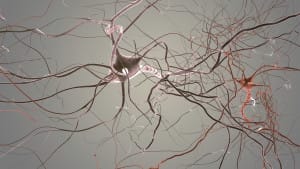An experimental procedure known as deep brain stimulation (DBS) has shown promise as a treatment for severe anorexia nervosa. DBS is currently an approved treatment procedure for essential tremor, Parkinson’s disease, dystonia and obsessive-compulsive disorder, but it is being studied as a treatment for anorexia, chronic pain and certain affective disorders. A 2013 study from the Krembil Neuroscience Centre of Toronto Western Hospital and the University Health Network explored the effect of DBS on patients whose anorexia was so severe that it had become a long-term chronic illness and was likely to result in premature death.
Patients With Chronic Anorexia Respond for the First Time
The six patients who participated in the initial phase of this study had been suffering from anorexia for an average of 18 years. Together, the six patients had been hospitalized nearly 50 times and suffered numerous complications related to the illness. Five of the patients had co-morbid conditions, including obsessive compulsive disorder and major depressive disorder. DBS is a procedure that involves stimulating electrodes that have been implanted in parts of the brain connected with emotion. The patients remain awake during the procedure and are evaluated for changes in mood and anxiety as the different electrodes are stimulated. For this study, the electrodes were connected to a pulse generator that produced regular stimulation, and patients were re-evaluated one, three and six months following the implants. After nine months, three of the six patients had achieved their highest ever body-mass index (BMI) and their longest-ever period of sustained weight gain. Four of the six patients showed improved control over their disordered eating symptoms as well as improved mood, anxiety and emotional control. Two of the six patients were able to complete an in-patient disordered eating treatment program for the first time since the onset of their illness.
Addressing Psychological Issues Key to Successful Treatment
DBS is still very much in the experimental phase as a possible treatment for disordered eating, but researchers believe it has the potential to be a game-changer for patients who have repeatedly failed to respond to standard treatments. Approximately 20 percent of people who develop anorexia nervosa become chronic sufferers, resisting treatment and experiencing frequent relapses. Addressing the emotional and psychological issues associated with eating disorders are often the key to positive treatment outcomes for these patients. When patients are treated only for their extremely low body weight and not for the associated psychological symptoms, they frequently relapse and begin the process of restrictive eating and weight loss all over again.
DBS Has Life-Saving Potential for Anorexia
While the exact way in which DBS affects the brain is still only partially understood, researchers believe that the procedure helps to activate and correct the action of brain circuits that have become dysfunctional. Past studies have used neuro-imaging technology to demonstrate that people with eating disorders have differences in the structure and function of brain circuits responsible for managing reward feedback, anxiety, mood and body image. DBS may be able to correct some or all of the differences that have been observed, enabling patients to respond to traditional treatment for the first time Anorexia nervosa is often considered to be the world’s deadliest psychological illness, with a death rate as high as 15 percent. The disorder can cause acute symptoms that result in death and can also do long-term damage to organ tissue and bones that can shorten a patient’s lifespan.

